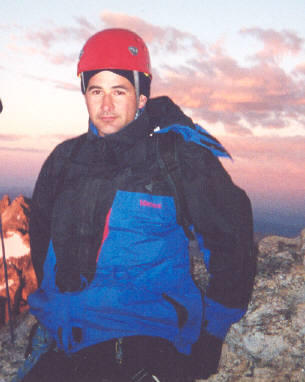The post-Booker thicket, the sixth amendment, sentencing guidelines and the reasonableness standard
By Wallace E. Francis and Jennifer Willits
INTRODUCTION
It was in the eighteenth century that Blackstone commented that juries were part of a "strong and two-fold barrier . . . between the liberties of the people and the prerogative of the crown" because "the truth of every accusation . . . . [must] be confirmed by the unanimous suffrage of twelve of his equals and neighbors indifferently chosen and superior to all suspicion.".
In the later part of the twentieth century, the Supreme Court upheld this important right and overruled Congressional law also designed to accomodate an important right; that of giving different defendants in different places equivalent terms and avoiding unjust disparities in sentencing.
The conflict here is vast and complex. This casenote addresses the origin of the Apprendi/Blakely/Booker rule and it's consequences in relation to the reasonableness standard. The issues of "plain error" and "pipeline" cases , are beyond the scope of this casenote. It attempts to trace the origins of the rule and it's implications to California's sentencing standard.
The Sentencing Reform Act
In 1984, more than 20 years ago, Congress passed the Sentencing Reform Act(SRA) . Prior to this date, federal judges had broad discretion with regard to sentencing within a wide statutory range. The Act was passed in an effort to avoid disparate sentences for similar crimes and to provide fairness and predictability in sentencing ranges. The Federal Sentencing Commission was formed under the Act, and the commission established a set of mandatory guidelines for the federal judiciary. During the last 25 years, most state courts have also done away with the discretionary sentencing style of the past and adopted their own guidelines, which vary from state to state but follow the ideal of providing certainty in sentencing. This was the noble goal of the commission.
There was widespread criticism of the sentencing laws. Critics pointed out that judges were now using facts not proven to a jury in order to sentence defendants to sentences much longer than the maximum allowable for the crime they were charged with. Prosecutors were able to charge a person under a "reasonable doubt" standard then judges could enhance the sentence under the "preponderance of the evidence" standard.
Apprendi v. New Jersey 530 U.S. 466 (2000)
The conflict between the sixth amendment and the sentencing guidelines came to light in a series of cases beginning with Apprendi V. New Jersey. Apprendi held that judges cannot enhance the sentence of a defendant using facts which have not been proven to a jury by the "reasonable doubt" standard beyond the statutory maximum. Against the backdrop of this decision, other courts refused to follow Apprendi. The Supreme Court, realizing the lower courts needed clarification, took the opportunity presented in the landmark case, Blakely v.Washington , to do so.
Blakely v. Washington
In an unexpected and fractured five-four decision, the Court held per Justice Scalia that the Washington State sentencing guidelines violated the Sixth Amendment right to a jury trial as well as the Fifth amendment due process right. Citing Apprendi, they followed the rule which stated that "other than the fact of a prior conviction, any fact that increases the penalty for a crime beyond the prescribed statutory maximum must be submitted to a jury, and proved beyond a reasonable doubt." Although the Apprendi rule had been applied in previous cases, it was later limited in its application by subsequent lower court rulings. This absolute and unqualified rule in Blakely (although the ninth circuit has now stated in the partially published opinion in People v. Black that there is no bright-line, contrary to the widely held view in accordance with the second circuit. turned twenty years of sentencing reform upside down.
Justice O’Connor pointed out in her dissent (in which she scathingly referred to this decision as a "Godzilla raging through Tokyo".) that the Blakely decision would probably not be limited to Washington state law, but would clearly affect the Federal Sentencing Guidelines as well.
The decision left numerous questions. The Washington state guidelines struck down in Blakely were almost identical to the federal guidelines. Would the court also make the same ruling in relation to the Federal Sentencing Guidelines? Would the rule by retroactively applied? Would hundreds or thousands of defendants now be up for resentencing and thus shorter sentences? U.S. District Judge Susan Bucklew said, "I'm not sure what I'm going to do. I don't think anybody is sure what to do. ... It is an extremely stressful time."
Douglas Berman, an Ohio State University law professor and one of the foremost experts on sentencing law stated that Blakely is "like an earthquake," and that "Twenty years of investment in structured sentencing has essentially come crashing down." (and now)they're trying to figure out which parts have come down and how to put them back up again."
The Supreme Court, well aware of the confusion that the decision created, attempted to clarify the questions, or at least some of them, in the form of the Jan. 12, 2005 decision in US v. Booker.
US v. Booker
As the January 2005 decision in U.S. v. Booker demonstrates, O'Conner was absolutely correct in her concerns over the fate of the federal sentencing guidelines. In a decision that generated six opinions opinions from the Supreme Court, Booker applied the Blakely decision to Federal law, going so far as to invalidate and excise a portion of the United States Code.
Freddie Booker was charged with possession with intent to distribute at least 50 grams of crack (statutory minimum of 10 years prison, life maximum). The jury heard evidence that Booker had 92 grams in his duffel bag, and found him guilty of the charge. Based on the jury’s finding, combined with Booker’s prior criminal history, federal sentencing guidelines required the judge to assign a “base” sentence of 210 months minimum.
In post-trial sentencing proceedings, the judge concluded by a preponderance of the evidence that Booker possessed an additional 566 grams of crack and that he was guilty of obstructing justice. Those findings required the judge to impose a 360 months minimum sentence. The judge sentenced Booker to 30 years (360 months) in prison, a significant increase in his sentence.
On appeal, the seventh circuit court held the sentence was an unconstitutional violation of Booker’s Sixth Amendment rights, citing the Apprendi rule and relying on the recent Blakely decision. The case was remanded to the District Court with instructions to resentence within the range consistent with jury findings, or hold a separate sentencing hearing before a jury. The Government petitioned the Supreme Court for a writ of certiorari, which was granted, asking the Supreme Court to determine whether the Apprendi line of cases applies to the Federal Sentencing Guidelines, and if so, what portions of the guidelines remain in effect.
Justices Stevens delivered the first part of the majority opinion. The court held that the current sentencing guidelines violated the Sixth Amendment. They affirmed the rule from Blakely, citing Apprendi stating that "the ‘statutory maximum’ for Apprendi purposes is the maximum sentence a judge may impose solely on the basis of the facts reflected in the jury verdict or admitted by the defendant.”
As far as the majority were concerned, there was no significant distinction between Washington State procedure in Blakely and the Federal Sentencing Guidelines; thus, the rule applied in Federal court as well as state. Both systems were unconstitutional because they imposed mandatory guidelines on judges. Justice Stevens explained:
"We have never doubted the authority of a judge to exercise broad discretion in imposing a sentence within a statutory range. Indeed, everyone agrees that the constitutional issues presented by these cases would have been avoided entirely if Congress had omitted from the SRA the provisions that make the Guidelines binding on district judges… When a trial judge exercises his discretion to select a specific sentence within a defined range, the defendant has no right to a jury determination of the facts that the judge deemed relevant."
Justice Breyer delivered the second part of the opinion, further clarifying statements made by Stevens as to the application of the rule. The majority found portions of the U.S Code to be incompatible with the Court’s holding, and addressed the question of whether this finding invalidates the Guidelines “as a whole.”
The analysis included a discussion of the probable legislative intent of Congress with regard to sentencing statutes in light of the Court’s holding. Breyer concluded that the Guidelines need not be eliminated entirely, but must be modified:
"One approach…would retain the Sentencing Act (and the Guidelines) as written, but would engraft onto the existing system today’s Sixth Amendment “jury trial” requirement. The addition would change the Guidelines by preventing the sentencing court from increasing a sentence on the basis of a fact the jury did not find (or that the offender did not admit.)
The other approach, which we now adopt, would make the Guidelines system advisory while maintaining a strong connection between the sentence imposed and the offender’s real conduct—a connection important to the increased uniformity of sentencing that Congress intended its Guidelines system to achieve."
Many experts believe the Booker decision did little to alleviate the problems and confusion created by Blakely. By allowing each federal circuit to build their own interpretation of the “reasonableness standard” through precedent, the problems Congress sought to avoid in passing the Sentencing Reform Act were perpetuated: disparate sentencing for the same crimes based upon the jurisdiction in which the defendant was charged and convicted. In fact, in the recent decision in US v. Shannon, No. 04-2895 (8th Cir. July 14, 2005) the court handed out a sentence of 58 months, when the standard range for that type of crime was only 6-12 months. The 8th circuit concluded that such a sentence was not unreasonable.
People v. Black
The latest Booker decision in California, People v. Black, points to what the court claims are important differences between California's sentencing guidelines and those guidelines promulgated by the state of Washington and the federal government. It is because these guidelines are different that the ninth circuit felt compelled to rule that California's sentencing laws were constitutional, claiming that the Blakely/Booker rule was thus inapplicable.
California uses "determinate" sentencing. In this type of sentencing, the judges choose between three different sentences, rather than any number within a chosen range (for example five years, ten years, or fifteen years rather than any sentence from five to twenty years). California judges are required to give the middle-range unless aggravating factors are found from which the judge may enhance the sentence unilaterally.
California's guideline, as argued in Black, essentially gives the court the same type of power Blakely held unconstitutional, the power to make determinations of fact from which one may enhance the sentence.
The majority disagreed, stating that the type of facts usually found by juries were not like the ones being used here.
"Because an aggravating factor under California law may include any factor that the judge reasonably deems to be relevant, the determinate sentencing law’s requirement that an upper term sentence be imposed only if an aggravating factor exists is comparable to Booker’s requirement that a federal judge’s sentencing decision not be unreasonable."
CONCLUSION
The Apprendi/Blakely/Booker rulings by the Supreme Court continue to create currents and countercurrents in American jurisprudence. Recent rulings of the California indicate that the conflict is not over. The Supreme Court has spoken on the issue of the sixth amendment but perhaps not clearly. As long as circuit courts continue review cases with a different standard of "reasonableness", the Supreme Courts' spirited defense of the sixth amendment will in all likelihood continue to create confusion.
Blackstone, Commentaries on the Laws of England *349-*350 (T. Cooley 4th ed. 1896).
See United States v. Ameline, 376 F.3d 967 as well as "Litigating in a Post-Booker World" by Alan Ellis, Karen L. Landau, and James H. Feldman, Jr. Criminal Justice 20, No.1, Spring 2005 by the American Bar Association
United States v. Ameline, 376 F.3d 967, 983
18 U.S.C.S. § 3551 and 28 U.S.C.S. § 991
Apprendi v. New Jersey, 125 S.Ct. 738
Blakely v. Washington, 124 S. Ct. 2531 (2004)
People v. Black Ct. App. 5 No. F042592
See http://www.crimblawg.com/2005/06/blacknbsp_the_o.html
See "The Roots and Realities of Blakely, " by Douglas A. Berman, from Criminal Justice, Volume 19, No.4 Winter 2005 by the American Bar Association
http://news.tbo.com/news/MGBDF500KWD.html
http://www.washingtonpost.com/wp-dyn/articles/A45192-2004Jul12.html
125 S. Ct. 738 (2005)
See 18 U.S.C.S. §§ 3553(b)(1) and 3742(e). Thus the courts were now bound by 18 U.S.C. § 3553(a) and the important prerequisite was that the sentence be "sufficient, but not greater than necessary" to,
A) reflect the seriousness of the offense, to promote respect for the law, and to provide just punishment for the offense;
B) afford adequate deterrence to criminal conduct
C)protect the public from further crimes of the defendant; and
D) provide the defendant with needed educational and vocational training, medical care, or other correctional treatment in the most effective manner.
530 US 466, 490
See Apprendi v. New Jersey, 530 U.S. 481; Williams v. New York, 337 U.S. 241, 246 (1940).
125 S. ct. 725, 750
125 S. ct. 738, 756
http://www.ca8.uscourts.gov/
http://www.ca8.uscourts.gov/opndir/05/07/042895P.pdf see also http://sentencing.typepad.com/sentencing_law_and_policy/booker_in_the_circuits/
People v. Black Ct. App. 5 No. F042592
See http://writ.news.findlaw.com/amar/20050624.html for an in-depth analysis "An Important Sentencing Ruling from the California Supreme Court: " from Vikram David Amar
People v. Black Ct. App. 5 No. F042592 page 27




